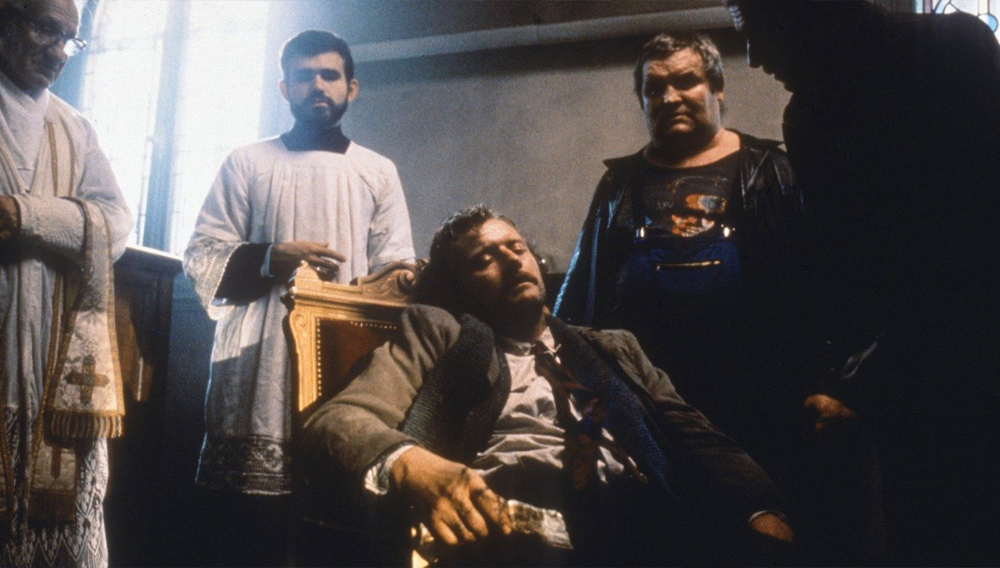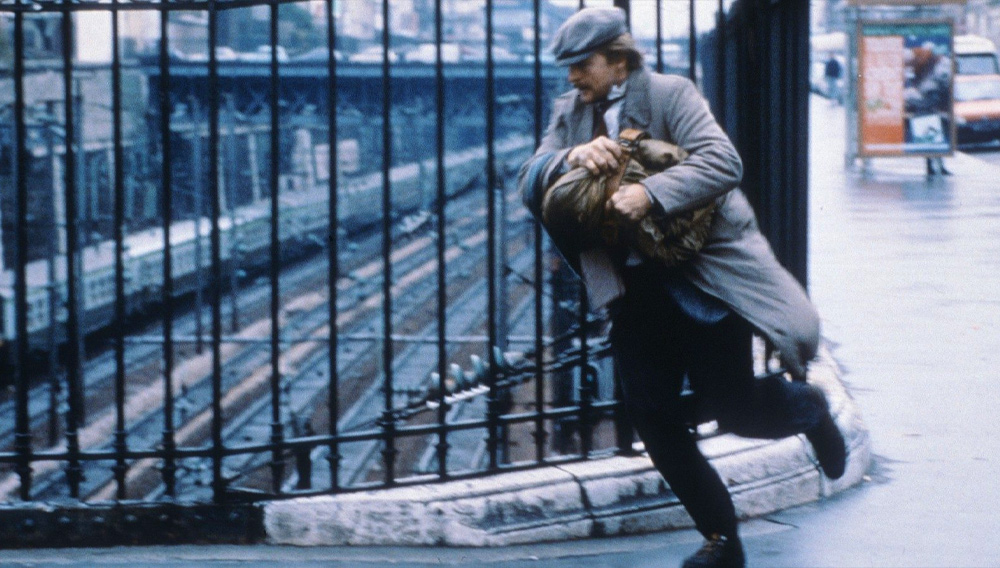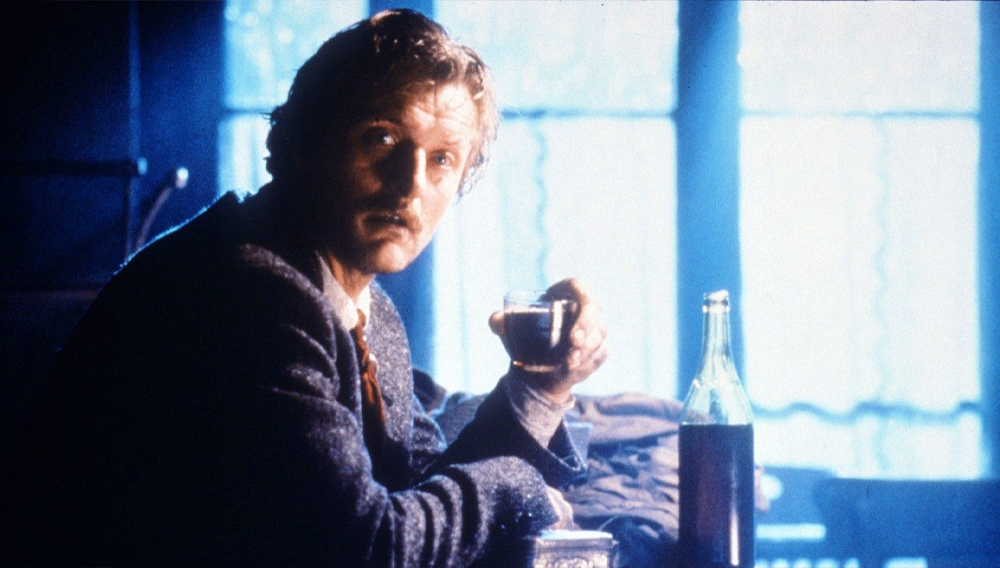A besotted dream of a very clean tramp, The Legend of the Holy Drinker is also a throwback (even for 1988, when it was released) to a particular kind of half-logy, umber-infused, myth-laden European arthouse cinema layered thick with obscure portents and kept aloft with lyrical fantasy interludes. It’s so old-fashioned that it’s practically new again. (Watch now on Fandor.)
The incomparable Dutch actor Rutger Hauer (Blade Runner) is Andreas, the tramp in question, introduced in the opening frames slouched along the river Seine, looking for his cozy spot underneath a bridge where he passes most of his nights. This time, though, he encounters a well-dressed, older man who begins to proselytize, speaking of “the miracle of conversion.” The dutiful stranger offers Andreas whatever cash he might need, and after hesitating, the wandering soul accepts a loan of 200 francs.

Much ado is made by Andreas about repayment, but his benefactor asks only that he do so when he comfortably can by leaving a donation at a chapel for his favorite saint, Little Thérèse. That would be Thérèse of Lisieux (1873-1897), “the little flower of Jesus,” subject of Alain Cavalier’s 1986 film Thérèse and now to become Andreas’ new obsession. The problem is, he’s also obsessed with drinking, and as the title implies, he’s not only holy but wholly devoted to his alcoholism. Thus, every attempt he makes to repay the debt is sidetracked, either by his thirst or someone else’s. Even as his empty pockets are replenished (and always with the magic 200 francs or more), repeated visits to the chapel are detoured when Andreas stops in at a bar across the street—just one simple celebratory glass of wine, you see, for Little T. But you know how that goes…
Italian master Ermanno Olmi (1931-2018) had already won global acclaim for the neorealist Il Posto (1961) and the Lombardy peasant drama The Tree of the Wooden Clogs (1978)—a Palme d’Or winner notable for its cast of non-professional actors—and Legend performed likewise, taking the Golden Lion at Venice. Its balance of sure-handed visual elegance and Hauer’s embodiment of a wind-blown lush kept afoot by good luck and chance encounters was sympathetic to the highly romanticized air of melancholy and nostalgia evoked by the narrative.
The source material, Austrian author Joseph Roth’s 1939 novella of the same name, conjures a fable but was powerfully drawn from Roth’s own life. The writer was drinking himself to death as he composed the book, a downward spiral after a life of statelessness amid the chaos between World Wars I and II—and the aftermath of leaving his first wife Friederike Reichler to a mental institution. It’s rumored that the Jewish Roth may have converted to Catholicism in his later years, which may help explain its place in the story. Roth not only died as he lived; he died as he wrote, not long after he completed the novella.

Hauer’s casting begs some thoughts. Obviously, he has the movie star charisma to hold the screen for two hours but was nearing the end of his conventional leading man era. (Fully in step with his Hollywood career, Hauer nonetheless would become a busy genre-flick stalwart in the likes of Bone Daddy, New World Disorder and, in his last decade, Hobo with a Shotgun). I’d hazard to say that he’s too good-looking to convince as a vino-stained vagabond, though the air of cunning he brings makes him a resourceful derelict—and a desirable prospect to the mystery women who appear throughout the film in flashbacks (or dream sequences).
Nearly every other male character appears worthier of the gutter than Andreas, whose choice to wallow feels more willful than circumstantial. Yet, he remains as dedicated as he might be to the little saint. As a man hounded by the ghosts of his past, his drinking arouses their presence rather than puts them to rest, the wine he voraciously consumes turned from vice to sacrament.




